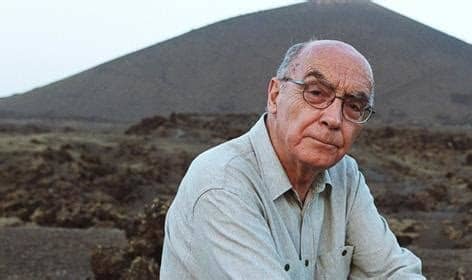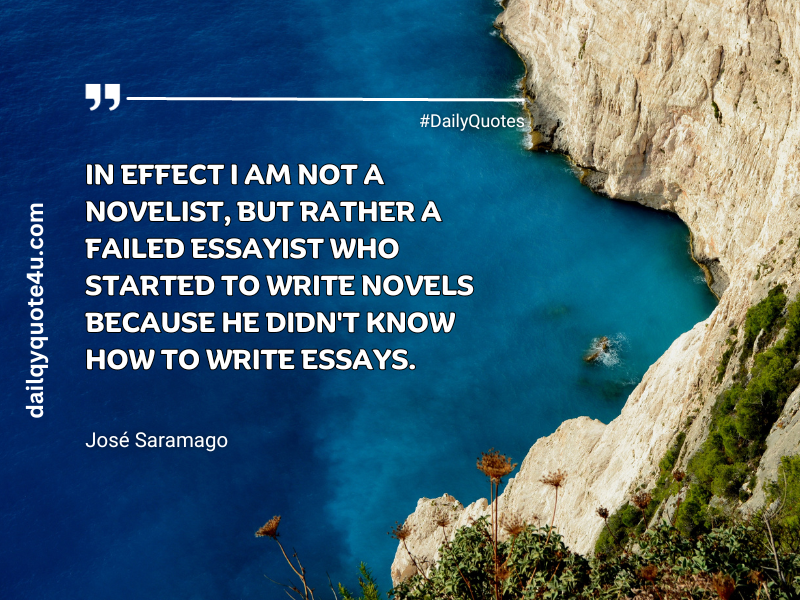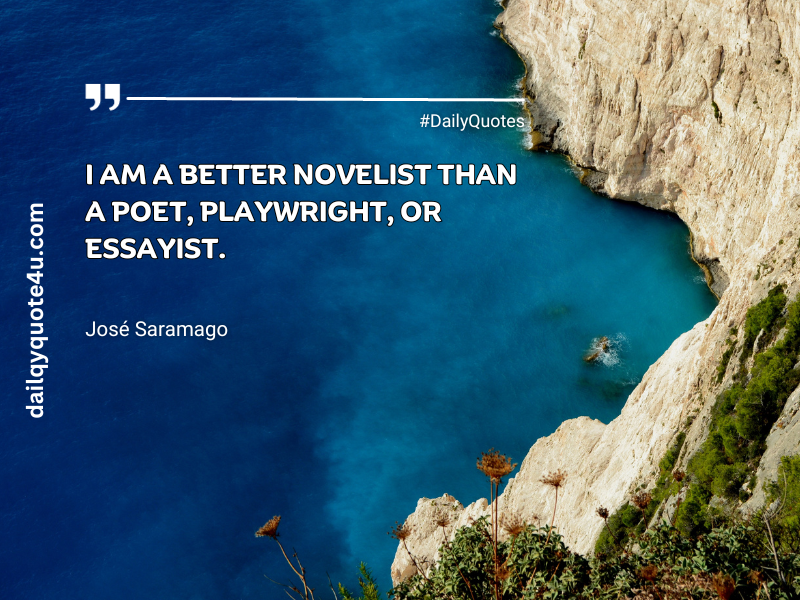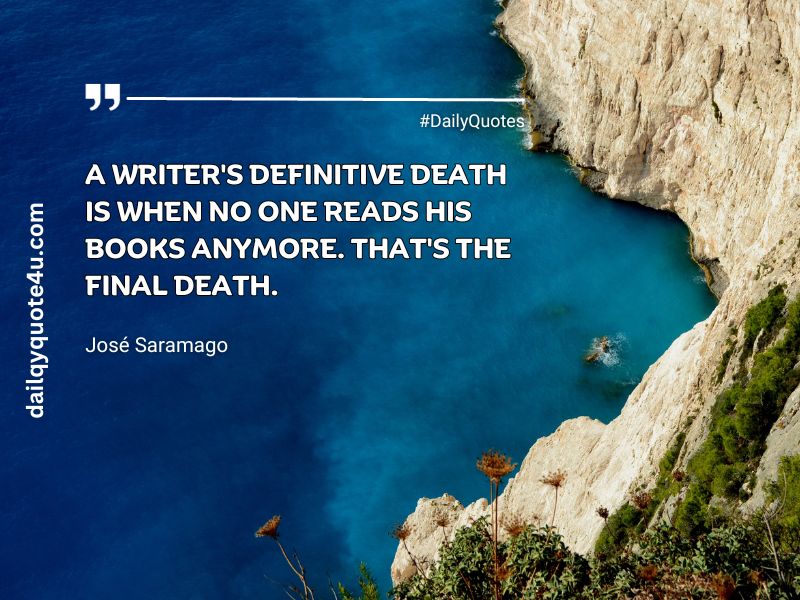José Saramago: A Literary Titan Who Reshaped Portuguese Literature
Here are some famous quotes by José Saramago. From the heart of rural Portugal emerged a literary titan, José Saramago, who would reshape the landscape of Portuguese literature and leave an indelible mark on the world of writing. His poignant prose, thought-provoking narratives, and unwavering commitment to truth and social justice earned him international acclaim and a place among the most celebrated authors of our time. The quotes mentioned are all-time famous for people around the globe.
Born in the small village of Azinhaga, nestled amidst the tranquil countryside of the Ribatejo region, Saramago’s early life was marked by humble beginnings and a thirst for knowledge. Despite the limitations imposed by his upbringing, he devoured books with an insatiable hunger, seeking to understand the complexities of the world around him.
Saramago’s journey into literature began in earnest in his mid-fifties, when most individuals would have settled into the comfort of established routines. However, Saramago was not content with the ordinary. He possessed an innate calling to explore the depths of human experience and unravel the mysteries of existence through the power of words.
His debut novel, “Terra do Pecado” (Land of Sin), published in 1947, marked the beginning of a prolific literary career spanning over four decades. While his initial foray into the literary world met with limited success, it ignited a flame of passion within him, fueling his determination to hone his craft and carve a unique niche in the literary landscape.
In the 1980s, Saramago’s literary prowess reached new heights with the publication of “Memorial do Convento” (Baltasar and Blimunda), a historical novel that catapulted him into the international literary spotlight. His subsequent works, including “O Ano da Morte de Ricardo Reis” (The Year of the Death of Ricardo Reis) and “O Evangelho Segundo Jesus Cristo” (The Gospel According to Jesus Christ), further cemented his reputation as a master storyteller.
Saramago’s literary style was characterized by its unconventional use of punctuation, long, flowing sentences, and a unique narrative voice that seamlessly blended historical events with philosophical musings. His works often explored themes of faith, freedom, and the complexities of human existence, challenging readers to confront their own beliefs and preconceptions.
In 1998, Saramago’s literary achievements were recognized with the Nobel Prize in Literature, an honor that underscored his profound impact on the world of literature. His selection marked the first time a Portuguese writer received the prestigious award, a testament to his groundbreaking contributions to the literary world.
Throughout his career, Saramago remained a staunch advocate for social justice and human rights, using his platform as a writer to champion the voiceless and challenge the status quo. His works often sparked controversy, but his unwavering commitment to truth and his fearless exploration of sensitive subjects earned him the respect and admiration of readers worldwide.
Saramago’s legacy extends far beyond his literary accomplishments. He was a man of profound intellect, unwavering integrity, and deep-seated compassion for humanity. His works continue to inspire and challenge readers, inviting them to embark on a journey of self-discovery and critical reflection.
As Saramago once remarked, “The function of literature is to disturb, to awaken people, to shake them up, to give them a new vision of the world.” His words serve as a testament to his enduring legacy, for his works continue to disturb, awaken, and shake up readers, leaving an indelible mark on the literary landscape.
Saramago’s life was a testament to the power of the human spirit, a story of unwavering dedication to one’s craft, and a relentless pursuit of truth. His legacy lives on in his works, which continue to inspire, challenge, and provoke readers worldwide, reminding us of the transformative power of literature and its ability to illuminate the depths of human existence.


















